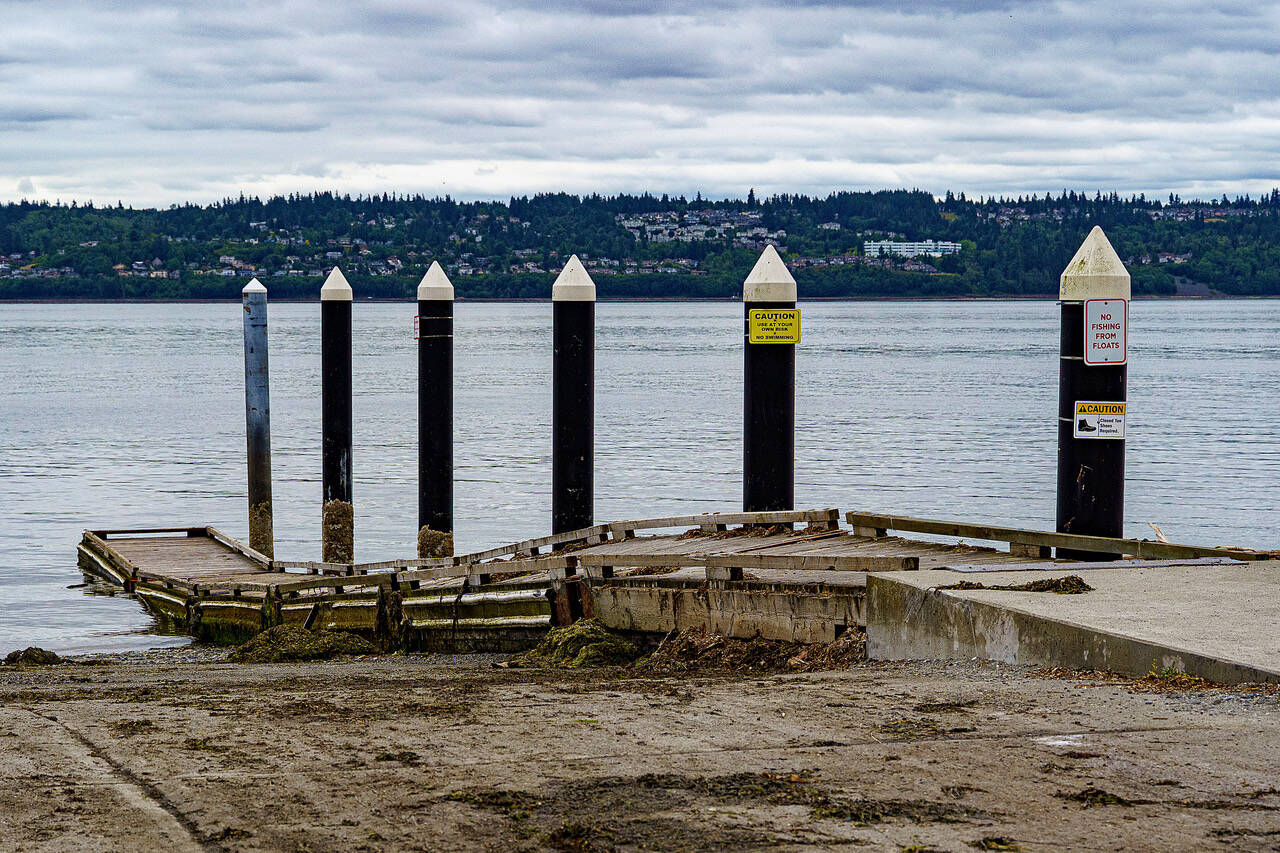Boaters will likely breathe a sigh of relief when part of Whidbey’s most southern public boat launch gets replaced and looks less like a tsunami wave hit it.
This week, the state Recreation and Conservation Funding Board announced the award of $148 million for “projects across the state that will build and improve parks and trails, conserve irreplaceable wildlife habitat and maintain land for farming and forestry,” according to a press release.
In Island County, the Port of South Whidbey received a $262,500 grant to replace the boarding floats at Possession Beach Waterfront Park. The current six floats were built in 1987 with heavy timber and Styrofoam floatation, according to information from the grant award. Over the years they have deteriorated and become severely warped, twisting into a perilous spiral shape at low tide. Wakes from larger vessels passing by have been known to toss smaller boats around that are launching from the site.
The new floats will consist of light-permeable surfaces and non-slip decking, reducing the risk of injury. The port will provide an additional $87,500, known as a sponsor match. The total agreement is $350,000, which is what Angi Mozer, the port’s former executive director, requested earlier this year. In a previous meeting, port commissioners talked about the possibility of using money from the general fund to cover the remaining cost.
The $262,500 grant comes from the Boating Facilities Program.
Interim Executive Director Rich Huebner said Thursday he did not yet have a timeline for construction of the new floats.
“Now that we’ve received notice of the award, the port will move forward on initiating the project and developing a timeline,” he said.
As part of the RCO grants, Island and Jefferson counties also received a joint award of $229,880 to restore sand-verbena moth habitat. According to the grant award, two of the known populations are in Deception Pass State Park and Fort Worden State Park. Washington State Parks will use this grant to expand habitat restoration for these critically imperiled species that are only in six known locations in the U.S.



